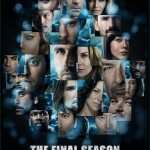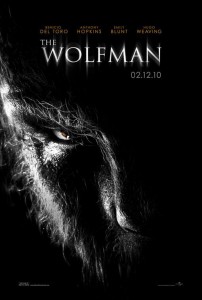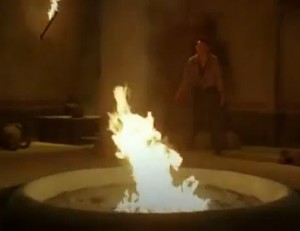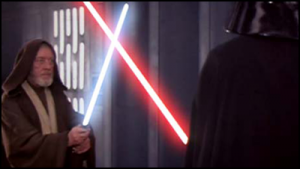Lost In Myth: What the LA X in “LA X” Really Refers To
 As soon as I learned of the title of Lost’s Season 6 premiere episode last year, I immediately began to wonder about its implications. Sure, the LA X was a reference to LAX, the abbreviation for Los Angeles International Airport where Oceanic Flight 815 was suppose to land, but why was there a space between the “LA” and the “X”? Like everything on Lost, surely this play on letters was for a reason.
As soon as I learned of the title of Lost’s Season 6 premiere episode last year, I immediately began to wonder about its implications. Sure, the LA X was a reference to LAX, the abbreviation for Los Angeles International Airport where Oceanic Flight 815 was suppose to land, but why was there a space between the “LA” and the “X”? Like everything on Lost, surely this play on letters was for a reason.
My first thought was that Jack’s plan will have failed, and that the X stood for an error—that the Losties would not be getting back to LA (as in LA? Survey says: X!) Then I thought that maybe both possibilities would exist—that an alternate reality could occur where the Losties both would and would not get to LAX (theory #3 of the “Season 6 Spoiler-Free Theories” post). This twin realities possibility has been a popular theory for the last nine months and did seemingly come to fruition with this episode. Still, I think the genius of the title name is that it has many meanings and that it’s main implication is not quite as apparent as the others. I’d also thought about the possibility of LA X, translating into “The X”—as in X marks the spot, or “the wrong choice” for Jack.
Now that I’ve seen the episode however, I think that the true meaning of the “X” is that of a variable in an equation. It is the unknown. A possibility that can go multiple ways. Thinking back to “The Variable” episode, what was it that Daniel Faraday said that the variables were in the equation of life? He said that they were us. And what do we now see in the “LA X” episode? We see two versions of the characters. One version where they were able to resolve their issues and one where they haven’t. One where they are struggling with challenges, and one where they have overcome them. One where they are motivated by greed and one by good. One where they are consumed by dark, and the other by light. One where they are dead, and another where they are alive. One where they have had it easy, and one where they have had it hard.
The message here is clear. Each of us has the potential to become the best version of ourselves or the worst…or, somewhere in between. This is our freedom of choice. Yet, while it is our choice, we are also often the victims or benefiters of our circumstances. So both fate and freewill have a hand in our destinies.
The duality theme has run through Lost since the beginning, and I’ve written about fate versus freewill and the good versus bad aspects of ourselves numerous times in relation to Lost and other recent films. The theme of whether or not we are actually the bad guys, or the dual sides of our personalities has been especially popular in films lately. District 9, Avatar, and other films have all explored the possibility of us being on the wrong team or learning to revaluate who we think our enemies are.
 One version of this theme also explores the dark sides of our personalities—the beast within us so to speak. Surely, there will be those who saw the many trailers of The Wolfman that aired during this episode of Lost as a complete coincidence and those of you who, like me, saw something more. (There is also the fact that this episode came out on Groundhog’s Day, the day when a hibernating animal affects the future positively or negatively depending on whether or not he can see his shadow self.) Yes, I’ve been accused of being a bit apophenic in my world view, but I’ve just experienced far too many serendipitous occurrences in my life to believe they are completely random. There is something bigger going on. Something that the universe is trying to tell us, or that our collective unconscious is trying to tell ourselves. It almost seems that much like the Losties, we too may be given a choice about who we want to be, and there may not even be a right or wrong answer. So far, which reality is the better one for the Losties—the one where they are on the island or the one where they are in LA? To some extent, it depends which character you’re talking about, but even still, some of the answers aren’t so clear-cut.
One version of this theme also explores the dark sides of our personalities—the beast within us so to speak. Surely, there will be those who saw the many trailers of The Wolfman that aired during this episode of Lost as a complete coincidence and those of you who, like me, saw something more. (There is also the fact that this episode came out on Groundhog’s Day, the day when a hibernating animal affects the future positively or negatively depending on whether or not he can see his shadow self.) Yes, I’ve been accused of being a bit apophenic in my world view, but I’ve just experienced far too many serendipitous occurrences in my life to believe they are completely random. There is something bigger going on. Something that the universe is trying to tell us, or that our collective unconscious is trying to tell ourselves. It almost seems that much like the Losties, we too may be given a choice about who we want to be, and there may not even be a right or wrong answer. So far, which reality is the better one for the Losties—the one where they are on the island or the one where they are in LA? To some extent, it depends which character you’re talking about, but even still, some of the answers aren’t so clear-cut.
To me, the island seems to be the version of life that explores fate, whereas LA seems to be more about free will. And something tells me that these two dichotomies will be merging together. After all, the LA Losties are in 2004, while the others are a bit over three years ahead of them (so technically, it isn’t really a flash-sideways, more like a flash up-and-over—like a knight move in chess). Regardless of whether or not the timelines eventually merge however, the dual timelines offer all kinds of juicy possibilities.
For most of Lost, many of the so-called “shippers” have wondered who Kate will end up with—Jack or Sawyer. Perhaps the answer is both—Jack on the island and Sawyer in LA. Will John Locke end up dead or alive? We can see both. We can see two versions of Jin and Sun’s relationship. A bad luck Hurley versus a good luck Hurley. A Jack who was a man of science who converted, and a Jack who was mostly a man of science but open to faith (he tells Locke in LA that nothing is impossible, so perhaps this Jack was more swayed at having fixed his former wife’s spine?) We might also learn if Shannon was better off using men, or getting to know true love before dying, and if Charlie would be better off as a living drug addict or a dead man who sacrificed himself for others.
 Speaking of sacrifice, one new question that Lost presents us with in this episode is why didn’t Jacob fight back? Ben asks Smokey the Locke, “why did he let me just kill him?” To which his manipulator replies, “I guess he knew that he was beaten.” Deep down, all of us know that there is something more going on here. Why did Jacob let Ben just kill him? Let’s refer to our old friend mythology for a clue.
Speaking of sacrifice, one new question that Lost presents us with in this episode is why didn’t Jacob fight back? Ben asks Smokey the Locke, “why did he let me just kill him?” To which his manipulator replies, “I guess he knew that he was beaten.” Deep down, all of us know that there is something more going on here. Why did Jacob let Ben just kill him? Let’s refer to our old friend mythology for a clue.
“If you strike me down, I shall become more powerful than you could possibly imagine” Ben “Obi-Wahn” Kenobi tells Darth Vader in Star Wars. Once in his spiritual form, Obi-Wahn is able to guide Luke to destroy the Death Star.  In The Lord of the Rings Gandalf the Grey sacrifices himself to save his friends and is transformed into the more powerful Gandalf the White. So, knowing how much Lost pays tribute to Star Wars and other mythology, it is highly probable that Jacob is sacrificing himself for the greater good and will eventually be returning in a more powerful form as well. The message for us (as discussed in “Choosing to Sacrifice for the Sake of the Island”) is that by challenging ourselves we grow into stronger people, better able to handle the challenges of the future.
In The Lord of the Rings Gandalf the Grey sacrifices himself to save his friends and is transformed into the more powerful Gandalf the White. So, knowing how much Lost pays tribute to Star Wars and other mythology, it is highly probable that Jacob is sacrificing himself for the greater good and will eventually be returning in a more powerful form as well. The message for us (as discussed in “Choosing to Sacrifice for the Sake of the Island”) is that by challenging ourselves we grow into stronger people, better able to handle the challenges of the future.
While Jacob’s enemy has certainly come up with a long con to find the loophole that could defeat Jacob, perhaps Jacob’s con is even longer, or at least, more involved. Perhaps the reason why Christian’s body is missing in the alternate timeline is because Jacob plans to beat his nemesis at his own game—taking Christian’s body from that realm in order to put his plan in effect. Whatever the details, it’s probably safe to assume that Jacob’s story isn’t over. And that he has a plan too. And that his plan will likely work. Maybe this is what Juliet is referring to when she posthumously tells Sawyer that, “It worked.” Yes, the implication is that Jack’s plan to prevent Oceanic 815 from ever crashing worked, but perhaps the real meaning refers to the bigger picture. In fact, perhaps the alternate timeline isn’t happening alongside the other, as their juxtaposition would suggest, but will happen after.
After Jacob wins, he may offer the Losties a chance to have lived as though none of this ever happened. Certainly, he will allow them to choose for themselves, as seems to be his modus operandi. And perhaps, we will never know what choice they make, for that will be the moment that Lost will cut to black for the last time—leaving us to spend the rest of our lifetimes pondering over which realities would be better for which characters. Will fate be better for the Losties or pure free will? This is one of the major questions of the show and the crux of the argument between Jacob and his nemesis. With this kind of ending, I can see why Lindelof and Cuse do not want to do a movie or spinoff series. The rest of the story will be up to us—both to discuss, and incorporate into our own lives. We will still be a bit lost, but at least we’ll be able to see the many paths before us, and hopefully chose them more wisely this time.
Marc Oromaner is a New York City writer whose book, The Myth of Lost offers a simple solution to Lost and uncovers its hidden insight into the mysteries of life. He can be contacted in the discussion section of The Myth of Lost Facebook page.
The Myth of Lost is available on Amazon and barnesandnoble.com.



One Response Leave a comment
I am gonna to bookmark this blogg on Mixx to get more clicks for you.